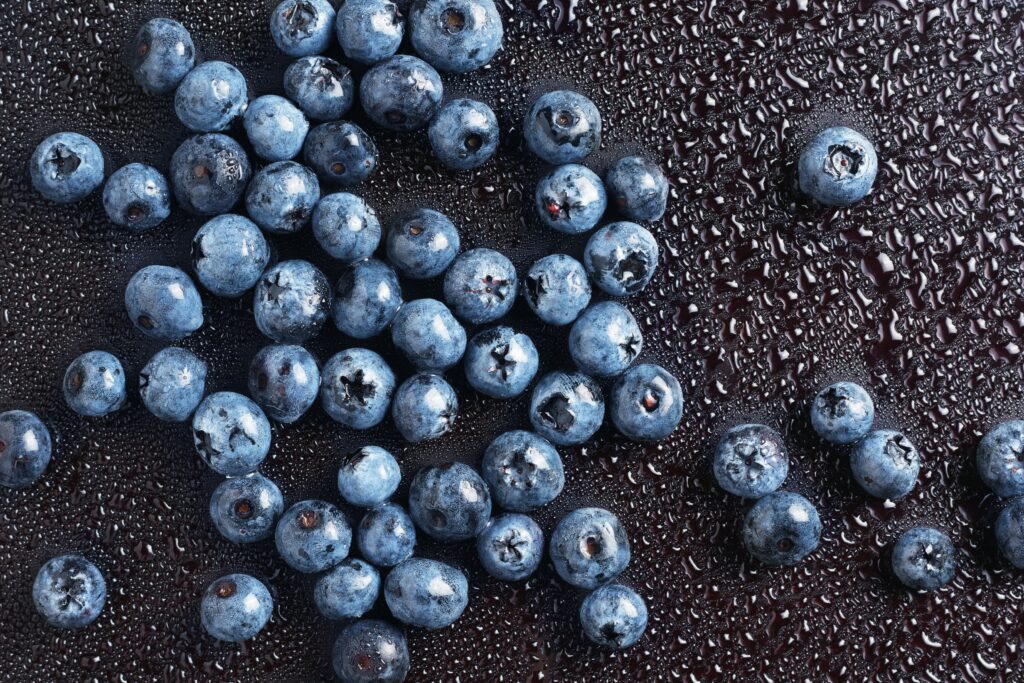This post may contain affiliate links, which means we may earn a commission if you purchase through those links at no cost to you. Full article you can read here.
Table of Contents
Introduction to Resveratrol
Resveratrol is a natural compound found in certain plants, particularly in the skin of red grapes. It has gained significant attention recently due to its potential health benefits. As a powerful antioxidant, resveratrol offers various advantages for our overall well-being. In this article, I will explore the world of resveratrol, exploring its benefits and how to incorporate it into our daily lives.
What is Resveratrol and How Does It Work?
Resveratrol belongs to a group of compounds called polyphenols, which are known for their antioxidant properties. It is produced by plants as a defense mechanism against stress, infection, and harsh environmental conditions. When we consume resveratrol, it interacts with our cells and activates certain pathways that promote health and longevity.
The primary source of resveratrol is red grapes, but it can also be found in other fruits like blueberries and cranberries, as well as in peanuts and dark chocolate. Research suggests that resveratrol can mimic the effects of calorie restriction, a dietary practice known to extend the lifespan of various organisms. By activating specific genes and proteins, resveratrol helps protect our cells from damage caused by oxidative stress and inflammation.




The Health Benefits of Resveratrol:
Cardiovascular Health
One of the most well-known benefits of resveratrol is its positive impact on cardiovascular health. Studies have shown that resveratrol can improve blood flow, reduce inflammation, and lower blood pressure. By enhancing the function of blood vessels and reducing the risk of blood clots, resveratrol helps promote a healthy heart.
Additionally, resveratrol has been found to increase the levels of high-density lipoprotein (HDL) cholesterol, also known as the “good” cholesterol. HDL cholesterol helps remove low-density lipoprotein (LDL) cholesterol, or the “bad” cholesterol, from the bloodstream, reducing the risk of plaque buildup in the arteries.

Anti-Aging Properties
Resveratrol has gained a reputation for its potential anti-aging properties. It activates certain genes and proteins that are involved in the regulation of cellular aging processes. By reducing oxidative stress and inflammation, resveratrol helps protect our cells from damage, which can lead to premature aging.
Furthermore, resveratrol has been shown to activate a protein called sirtuin 1, or SIRT1, which plays a crucial role in regulating cellular metabolism and DNA repair. By activating SIRT1, resveratrol promotes cellular health and longevity, potentially slowing down the aging process.

Cancer Prevention
Another exciting potential benefit of resveratrol is its ability to prevent cancer. Research has shown that resveratrol can interfere with the growth and spread of cancer cells in various types of cancer, including breast, prostate, and colon cancer. It does so by inhibiting the activity of certain enzymes and proteins that are involved in tumor formation and progression.
Additionally, resveratrol has been found to enhance the effectiveness of chemotherapy and radiation therapy, making cancer treatments more efficient. However, it is important to note that resveratrol should not be used as a sole treatment for cancer, but rather as a complementary approach alongside conventional therapies.

Brain Health
Resveratrol has also shown promise in promoting brain health and protecting against age-related cognitive decline. It has been found to enhance memory and learning abilities in animal studies. Resveratrol’s antioxidant and anti-inflammatory properties help protect brain cells from damage caused by free radicals and inflammation.
Moreover, resveratrol increases the production of a protein called brain-derived neurotrophic factor (BDNF), which plays a crucial role in the growth and maintenance of neurons. By promoting neuroplasticity and neurogenesis, resveratrol supports brain health and may reduce the risk of neurodegenerative diseases like Alzheimer’s and Parkinson’s.

Diabetes Management
Resveratrol has shown potential in managing and preventing diabetes. It improves insulin sensitivity, which helps regulate blood sugar levels and reduces the risk of insulin resistance. Resveratrol also reduces inflammation in fat cells, which can contribute to insulin resistance and type 2 diabetes.
Furthermore, resveratrol has been found to activate an enzyme called AMP-activated protein kinase (AMPK), which plays a crucial role in energy metabolism. By activating AMPK, resveratrol helps increase glucose uptake and utilization by cells, improving overall glucose control.

How to Incorporate Resveratrol into Your Diet?
Dietary Sources of Resveratrol
To experience the benefits of resveratrol, you can incorporate certain foods into your diet. Red grapes, blueberries, cranberries, peanuts, and dark chocolate are all good sources of resveratrol. To maximize the resveratrol content, opt for organic and locally sourced produce whenever possible.
It’s important to note that the resveratrol content in these foods can vary depending on factors such as growing conditions and processing methods. Nevertheless, including a variety of resveratrol-rich foods in your diet can provide a steady supply of this beneficial compound.
Supplementation Options
If you find it challenging to consume enough resveratrol through your diet alone, supplementation can be a convenient option. Resveratrol supplements are available in various forms, including capsules, tablets, and liquid extracts. When choosing a supplement, look for a reputable brand that undergoes third-party testing to ensure quality and purity.
It’s advisable to consult with a healthcare professional before starting any new supplement regimen, especially if you have any underlying health conditions or are taking medication. They can provide personalized guidance based on your specific needs and circumstances.
Resveratrol Research and Studies
Key Findings and Results
Numerous studies have been conducted to explore the potential benefits of resveratrol. These studies have yielded promising results, demonstrating the positive effects of resveratrol on various aspects of health. For example, a study published in the journal “Nature” found that resveratrol extended the lifespan of yeast cells by activating certain genes linked to longevity.
In another study published in the “Journal of Agricultural and Food Chemistry,” researchers found that resveratrol had potent antioxidant and anti-inflammatory effects. These properties are essential for combating chronic diseases and maintaining overall health.
Potential Future Applications
The research on resveratrol is ongoing, and scientists are continuously discovering new potential applications for this powerful compound. Some studies suggest that resveratrol may benefit weight management, immune function, and even mental health. However, further research is needed to fully understand the extent of resveratrol’s capabilities.
It’s worth mentioning that resveratrol research is not limited to oral consumption. Topical application of resveratrol has shown promise in skincare, with studies indicating its potential to protect against UV damage and reduce signs of aging. The future of resveratrol research holds exciting possibilities for improving our health and well-being
Potential Side Effects and Precautions
While resveratrol is generally considered safe for most people, it’s essential to be aware of potential side effects and take precautions, especially when consuming high doses or supplements. Some individuals may experience digestive issues, such as diarrhea or stomach cramps when taking resveratrol supplements.
Additionally, resveratrol may interact with certain medications, including blood thinners and anti-inflammatory drugs. If you’re taking any medications, it’s crucial to consult with your healthcare provider before adding resveratrol to your routine to ensure it won’t interfere with your medication’s effectiveness or cause any adverse effects.
Choosing the Right Resveratrol Supplement
When selecting a resveratrol supplement, several factors should be taken into consideration. Look for a supplement that clearly states the resveratrol content per serving and provides information about its sourcing and manufacturing processes. Ideally, choose a brand that undergoes third-party testing to ensure quality and purity.
Furthermore, opt for a supplement that contains trans-resveratrol, the active form of resveratrol that is readily absorbed by the body. Avoid supplements that contain unnecessary fillers, additives, or artificial ingredients. Always follow the dosage instructions provided by the manufacturer or consult with a healthcare professional for personalized guidance.
Frequently Asked Questions about Resveratrol
- Q: Can resveratrol reverse the effects of aging? A: While resveratrol has shown promise in slowing down certain aging processes, it cannot reverse the effects of aging entirely. It is best viewed as a complementary approach to a healthy lifestyle and other anti-aging strategies.
- Q: Is it safe to consume resveratrol during pregnancy? A: The safety of resveratrol during pregnancy has not been extensively studied. It’s best to consult with a healthcare professional before consuming resveratrol or any other supplements during pregnancy or while breastfeeding.
- Q: Can resveratrol replace a healthy diet and exercise? A: Resveratrol should not be seen as a substitute for a healthy diet and regular exercise. It works best when combined with a balanced lifestyle that includes nutritious food choices and physical activity.
Resveratrol and Its Impact on the Beauty Industry
Skincare Products
Resveratrol has made its way into the beauty industry due to its potential benefits for the skin. Skincare products containing resveratrol claim to offer antioxidant protection, reduce the appearance of wrinkles and improve overall skin health. These products often combine resveratrol with other beneficial ingredients for enhanced effectiveness.
When choosing skincare products with resveratrol, look for reputable brands prioritizing quality and efficacy. Pay attention to the concentration of resveratrol and ensure the product is free from harmful chemicals or irritants. Incorporating resveratrol-based skincare products into your routine may help protect and rejuvenate your skin.
Haircare Products
Resveratrol has also found its way into haircare products, offering potential benefits for hair health. Some shampoos, conditioners, and hair treatments contain resveratrol to promote hair growth, reduce hair loss, and improve the overall condition of the hair. These products often combine resveratrol with other nourishing ingredients for optimal results.
When choosing hair care products with resveratrol, look for those specifically formulated to address your hair concerns. Consider the reputation of the brand, the quality of ingredients, and any additional benefits the product offers. Incorporating resveratrol-based haircare products into your routine may help nourish and strengthen your hair.

Conclusion
Resveratrol, a powerful antioxidant found in red grapes and other plant sources, offers numerous health benefits. From promoting cardiovascular health and anti-aging properties to potential cancer prevention and diabetes management, resveratrol has captured the attention of researchers and health enthusiasts alike. While dietary sources provide a natural way to incorporate resveratrol into your diet, supplementation can be a convenient option. Remember to choose high-quality supplements and consult with a healthcare professional before starting any new regimen.
As research continues, the potential applications of resveratrol expand beyond internal health. Skincare and haircare products infused with resveratrol offer additional avenues to experience its benefits. Ensure you select reputable brands and consider the concentration of resveratrol in these products.
Ultimately, unlocking the power of resveratrol requires a holistic approach to health and well-being. By incorporating resveratrol into your diet and skincare routine, you can harness its potential benefits and enjoy a healthier, more vibrant life.
Disclaimer: Please note that the information provided in this article is not a substitute for professional medical advice. Consult a healthcare professional before making any purchasing decisions or starting a new supplement regimen. Full article you can read here.





